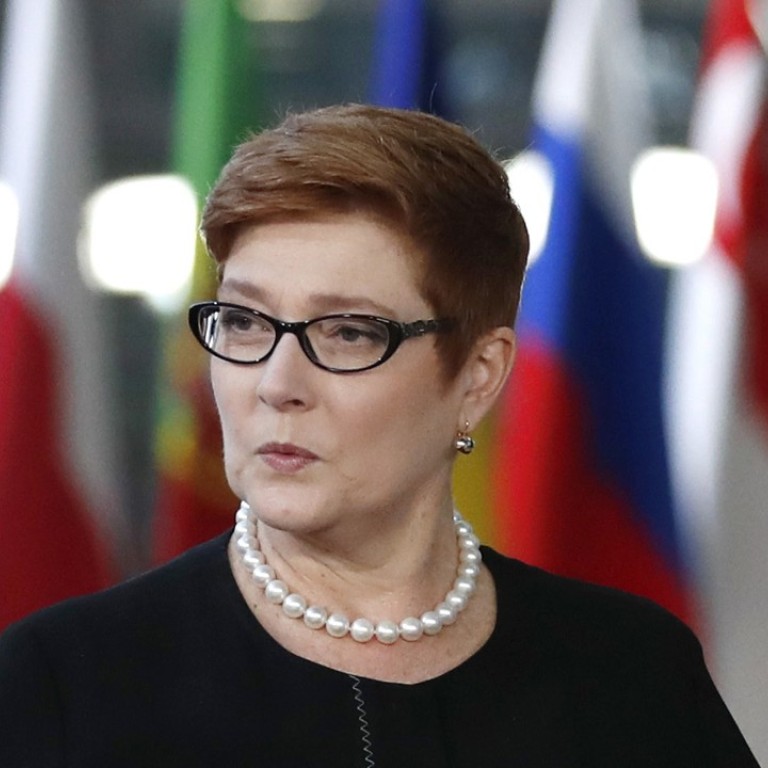
Reset in ties between China and Australia will benefit both sides
- There are thorny issues to be overcome in the relationship
- A change in the Australian leadership and a visit by the nation’s foreign minister to Beijing offer hope
China and Australia have much to benefit from ensuring smooth relations. The chance to thaw frosty ties has come with Australian foreign minister Marise Payne’s visit to Beijing, the first by a top official from the nation in more than six months. There are thorny issues to be overcome and Canberra’s suspicions and mistrust about Chinese intentions will take time to resolve. Communication and cooperation are the right approach to bringing about a much-needed reset.
A change of Australian leadership has brought about the fresh mindset. Prime Minister Scott Morrison has tempered the anti-Beijing rhetoric of his predecessor, Malcolm Turnbull, with an acknowledgement of the importance of good economic relations. Payne echoed the sentiment in talks with State Councillor and Foreign Minister Wang Yi, saying that Australia welcomed Chinese investment. Wang said China’s development was an opportunity, not a threat.
But highlighting the challenges, the visit took place amid rumblings in Australia over two business deals, one the likely rejection by Canberra of the proposed US$9.8 billion acquisition of the gas pipeline company APA by Hong Kong tycoon Li Ka-shing’s Cheung Kong Infrastructure. Payne said the purchase would result in “an undue concentration of foreign ownership” by a single company in an important sector of the economy. Morrison weighed in on the other, the signing by the Australian state of Victoria of a memorandum of understanding with Beijing on the “Belt and Road Initiative”. No details of the deal have been released, but the prime minister said he was surprised that Victorian authorities had not consulted the national government about their intentions; Canberra had previously decided against taking part in the infrastructure scheme for security and foreign policy reasons.
Australia is following the lead of its ally, the United States, in barring Chinese firms from sectors of the economy seen as being sensitive. The contention is that they have links to Beijing and will share information; leading technology companies Huawei and ZTE were blocked in August from 5G telecommunications development on security grounds, mirroring American fears. Such worries are unfounded and the scope of anti-Chinese sentiment would be considerably expanded should Cheung Kong’s bid be rejected as it is not a mainland firm. But Canberra went a step further under Turnbull, chilling ties by accusing the Chinese government late last year of meddling in Australian affairs.
Payne’s visit and Morrison’s moderate approach offer hope for better ties. Talks are a beginning and from them has to grow greater interaction to improve trust and understanding. There are too many benefits for both sides to not make the effort.

